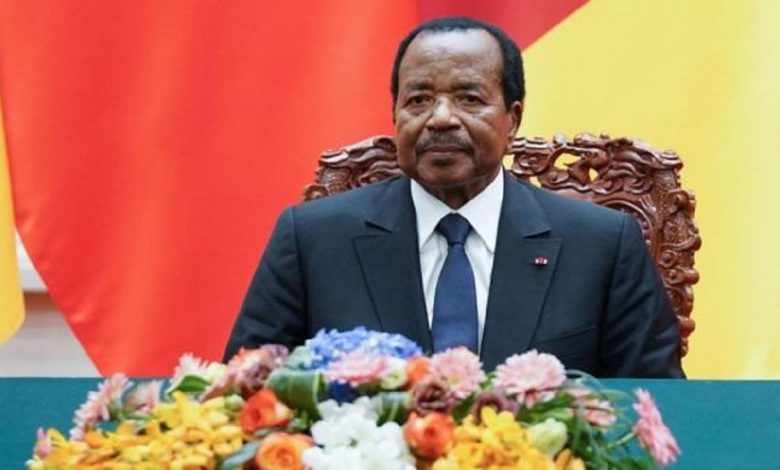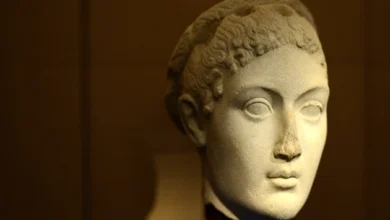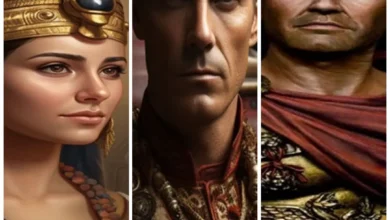Cameroon celebrates 60th anniversary of independence in turmoil

After 60 years of independence, Cameroon is going through one of the most difficult periods in its history with the security crisis resulting from the exactions of Boko Haram in the north and the political crisis in the English-speaking region of the west.
The first of the 17 African countries to become independent in 1960, Cameroon has so far had only two heads of state: Amadou Ahidjo, the father of independence, and Paul Biya (86), the current president, who has ruled the country for 37 years. On the occasion of this 60th anniversary, feelings are mixed in the country.
No demonstration is planned in the big cities of the country because it is only the part of Cameroon formerly administered by France which was released from the colonial yoke on January 1, 1960. The national holiday of Cameroon is different from that of Independence. It is instead the feast of Unity which is celebrated on May 20 of each year.
Cameroon became a nation on 20 May 1961, when the South-West and North-West regions, then under British trusteeship, were attached to the French-speaking part of the country.
In Douala, David Fomuso, an internal refugee who fled the violence in the English-speaking part of the country, is not enthusiastic and has no heart to celebrate. Asked by AFP, he stressed that the people “resigned, do not think about these 60 years”.
In order to live normally and allow his children to continue their schooling, he was forced to flee his village two years ago. He is one of the many victims affected by the separatist conflict in the north-west and south-western regions of his country. Clashes between the Republican Army and secessionist groups have left more than 3,000 people dead and more than 700,000 displaced. It is the same environment in the far north of the country, where since 2014, Boko Haram has caused several thousand deaths.
Aspirations for change
Moreover, 75% of the Cameroonian population under 35 years of age, who have only known President Biya, aspire to a new leadership. At least, this is the plea of opponent Maurice Kamto, who came second in the 2018 presidential election. Released last October after eight months in prison, he continues to claim victory in the presidential election.
After independence, Cameroon (population 24 million) will be followed by 13 other former French colonies, as well as the Democratic Republic of Congo (DRC), Somalia and Nigeria.
Chronology of the different stages towards independence
- In 1885, the Berlin Conference established the rules for the colonial partition of Africa.
- Seventy-five years later, in 1960, a large part of the continent achieved independence, while the two largest colonial powers, the United Kingdom and France, gradually withdrew. Here are the key dates for this period:
Colonial sharing
- November 15, 1884 – February 26, 1885: the Berlin Conference, convened on the initiative of German Chancellor Bismarck, sets the rules for the colonial partition of Africa. Fifteen years later, in 1900, almost the entire continent will be shared between the main European powers.
- June 16, 1895: the creation of French West Africa (AOF), the federation of eight French territories including Mauritania, Senegal, French Sudan (now Mali), Guinea, Ivory Coast, Niger, Upper Volta (now Burkina Faso ), Dahomey (now Benin).
- January 15, 1910: a comparable organization, French Equatorial Africa (AEF), was created in Central Africa. It brings together Gabon, Moyen-Congo (today Congo-Brazzaville), Oubangui-Chari (now Central African Republic), and Chad.
- February 1922: Egypt, under trusteeship, then under British jurisdiction, achieved independence.
- 1935-1941: rare African country not to have been colonized, Ethiopia is occupied by Italy. After the victory over the Italian troops in May 1941, the emperor Hailé Sélassié returned triumphantly to Addis Ababa.
- 1939-1945: several tens of thousands of African soldiers mobilized by the French and British armies lost their lives during the Second World War (including 55,000 among the only French colonial troops, after 63,000 “native” soldiers killed in 1914-1918).
- February 1944: a conference convened by General de Gaulle in Brazzaville, capital of the AEF, brings together the governors of the colonies. These become “integrated territories” and in 1946, the French Union succeeds the French colonial empire.
- May 8, 1945: French forces in Algeria suppress pro-independence demonstrations, killing thousands in the Sétif region.
- March 29, 1947: the bloody repression by the French army of an insurrection in favor of the independence of Madagascar made between 10,000 and 100,000 victims according to sources.
- 1951: the liberation of Libya, a former Italian colony occupied by France and the United Kingdom after the Second World War.
- April 18 to 24, 1955: the Bandung Conference (Indonesia) brings together 29 countries from Africa and Asia. It proclaims the principle of “active and peaceful coexistence”, denounces colonialism and demands for “all peoples” the right to self-determination and independence.
- 1956: Sudan (Anglo-Egyptian) proclaims its independence on January 1, Morocco and Tunisia become independent from France in March.
- July 26, 1956: nationalization of the Suez Canal.
Wave of independence
- March 6, 1957: independence of the Gold Coast, the first black African colony to access it. The country takes the name of Ghana under the authority of Kwame Nkrumah.
- August 24, 1958: General de Gaulle proposed to Brazzaville the creation of a Franco-African Community. Ahmed Sékou Touré’s Guinea is the only French-speaking African country to reject it, opting for its independence, from October 2.
- December 1958: the conference of African peoples, gathered in Accra, decides to support the independence movements in Africa.
- January 4, 1959: an insurrection in Léopoldville (Belgian Congo, present Democratic Republic of Congo) is repressed in blood.
- January 1, 1960: the proclamation of the independence of Cameroon. In total, 17 African countries, including 14 former French colonies, the Belgian Congo, Nigeria (British) and Somalia (Italy), gained independence during the year 1960.




